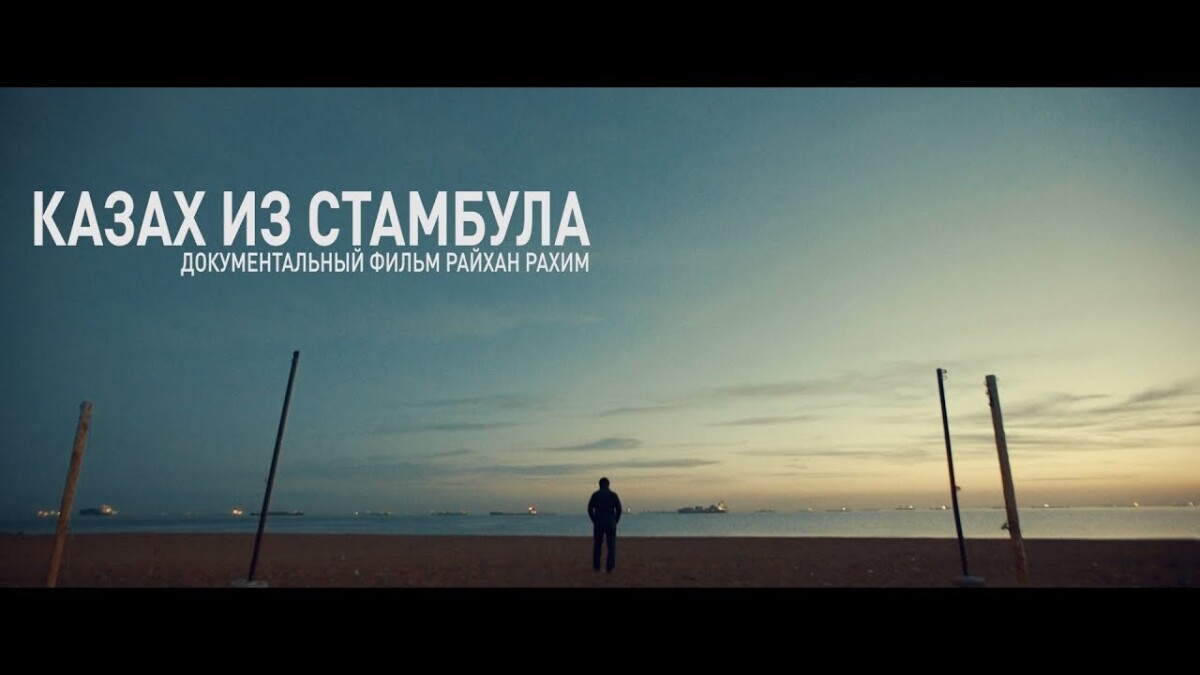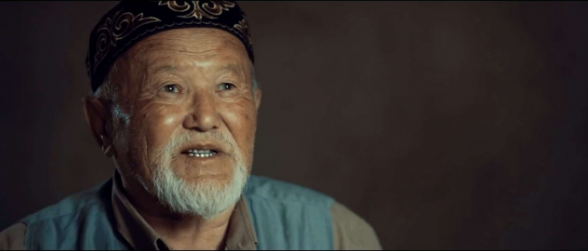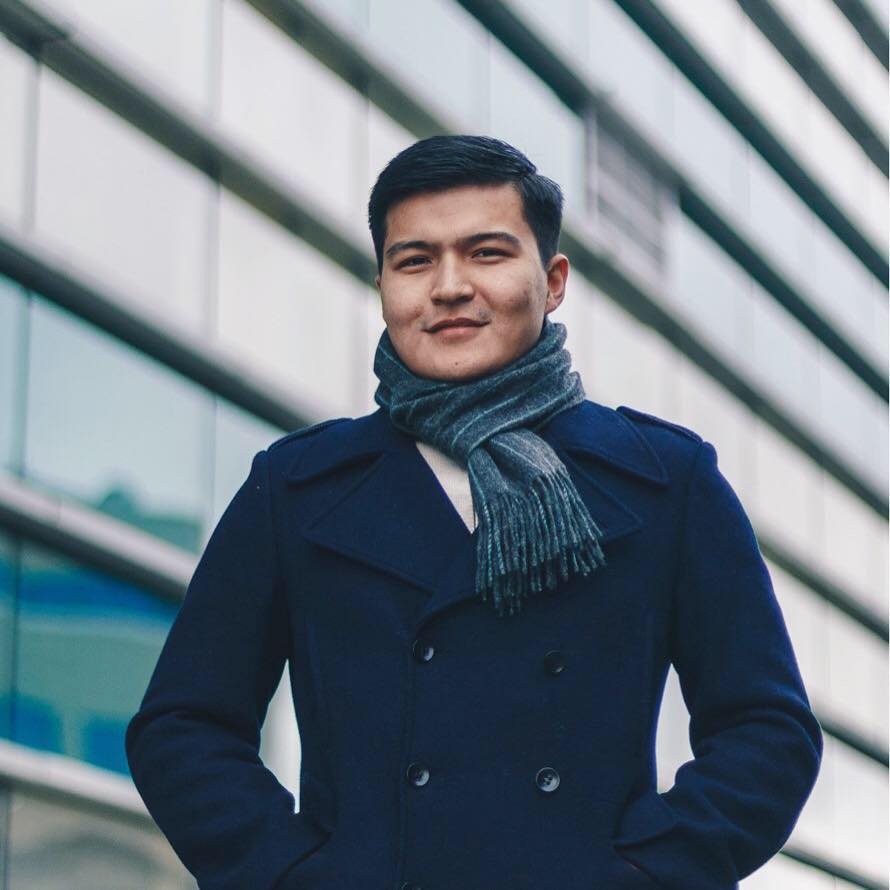
A journalist and a director Raikhan Rakhim recently presented her narrative film entitled ‘A Kazakh from Istanbul’, which is based on the stories of Kazakhs who were born abroad and those who, after crossing China, the Himalayas, Tibet, India and Pakistan, ended up in Turkey.
The film features Muftikhan-ata and Ilyas Kerim, two characters representing two generations – young and old. Both were born and spent most of their lives outside of Kazakhstan and both could not feel completely happy in Tukey. Muftikhan-ata, 75, recalls his early years as being difficult and full of challenges. His ancestors had to flee Kazakh soil during the years of colonisation, after which they settled in China. Having spent his childhood there, he then migrated to Turkey, where he was provided with everything. According to him, only Kazakhstan, where he has lived for more than 40 years, has made him fully satisfied and happy.
Another character, Ilyas Kerim, 41, a Kazakh athlete residing in Turkey, visits Kazakhstan for the first time. Reflecting on problems and social tensions existing in Turkey, Ilyas frequently mentions his will to live in Kazakhstan.
The camera follows them impartially, elegantly capturing real emotions and the real life of the characters.

Speaking to Issatay Minuarov, Raikhan Rakhim speaks with unusual condor about the film – about the Oralman question and the diffculties they face, how she approached each detail, challenges she faced during the filming process and many others.
This conversation has been edited for length and clarity
Issatay Minuarov: Let’s start with the main question. How did you come up with the idea of making this narrative? What inspired you?
Raikhan Rakhim: I have a decent experience of working as a journalist – storyteller. I worked as a storyteller for voxpopuli.kz web-site for a particular amount of time. After we left the web-site, I started to run my own page on another news outlet, www.365info.kz. The main idea of photo reports that I used to do was to tell about interesting people in Kazakhstan, their problems, and their life and to call on people for charity.
I travelled all across our Kazakhstan: many urban and rural areas are left behind. I met different people with different backgrounds and social-economic status. Thus, I have had 4-5 years of decent work experience in the field journalism. Then I decided to switch my interest from photo reports to a video shooting. By that time, I had a little experience of making a documentary as we released one along with Kanat Beysekeyev, a movie called ‘The Released’.
Last year I received an offer from Air Astana company to make a commercial. I was headed to Istanbul and took advantage of this trip by meeting with a bunch of Kazakhs living in Turkey. Elderly people told me about many things: how they ended up in Turkey and what they have gone through thus far. This could not make me indifferent. As there had been no film about Kazakhs who crossed Tibet, China, it was, first of all, interesting to me to make a documentary. I had never seen films about ethnic Kazakh repatriants living abroad. It should be noted that I wanted not a feature film but a documentary one.
I struggled a lot with finding characters for my film as the people I was interested in had health issues. Surprisingly, I bumbed into Muftihan-ata in Almaty. Although I am a Russian-speaking Kazakh and he speaks only Turkish and Kazakh, we could easily communicate – we had no difficulties understanding each other.
He demonstrated all the warmth and hospitality when he hosted me. Also, he made me feel like I was in my own house. Hospitality, tolerance, kindness, and generosity – these are all traits I noticed amongst Oralman people.
But, after I saw bad conditions of Muftihan-ata’s house, I started to be deeply anxious about that. I remember my first visit to his house – I cried a lot. All the houses in his area were as though they were about to collapse. I saw many things that Muftihan-ata did not even complain about. He is an optimist. I said to him: ‘Ata, I will keep filming just because of people like you.’
I never thought this movie would have a message that our young people are leaving Kazakhstan as they see no future here. But, it is not the case with Muftikhan ata. He came to Kazakhstan at a young age, he abandoned his comfortable life in Turkey and settled in Kazakhstan. He feels totally happy here.
IM: Did you seek to raise awareness amongst people about the social problems of both characters? Did you want to bring up the barriers they are experiencing both abroad and in Kazakhstan?
RR: Yes, absolutely. But there was also another message that I wanted to convey. Most often, it should be acknowledged that we treat Oralmans not as good as they should be. Our society make them feel alienated and isolated. Therefore, they end up having different problems mainly to do with their fitting within our Kazakhstani society.
Kazakhstani people think that repatriants live in their own world, and that they are people people with strange habits and manners and that they are close-minded and less-educated. For instance, Ata has no education at all but most importantly, he has wisdom and strong character. By depicting these two characters, I wanted to demonstrate the way of thinking that is common to Oralman people. With this in mind, I also wanted people to stop isolating them and instead treat them well so that they could keep coming to Kazakhstan with hope and love. I wanted to show how bad their conditions and what they are experiencing. They do not receive well-paid attention on the part of our government. Throughout our filming process, Ata never complained (I had to film the bad condition of the village).
Few days ago, I received an offer to show this movie in Europe and Turkey. But I turned the offer down as this documentary is designed for the Kazakhstani audience. This documentary was not done for the sake of my own popularity. The only thing I wanted was to raise awareness of our society.
The documentary is of low budget and my team is quite small. Mostly, this films has been made by only three people – I, operator and videoengineer. The rest of the contributors took part in other small details.
IM: Were there any difficulties you encountered during the filming process?
RR: For sure. You would think it is an easy process but it is not. Since it was my first experience of doing a documentary, I never though it would be a time-consuming and an overwhelming process. I was both a director and an editor. Before I started filming this, it took me a year to thoroughly research the topic. This documentary touches on a very fragile issue – national question. Taking into consideration Kazakhstan’s case, you have to be extremely delicate and careful when bringing up issues concerning national identity, language and many others. I wanted to attract people’s attention to our language and culture, but without going beyond.
From the outset, the documentary was designed for the Russian-speaking audience. Interestingly, the Kazakh-speaking audience also joined the former and demonstrated its interest. Why for Russian-speaking audience? This camp of our society tends to say ‘I am Kazakh’, but when you say so, you have to be able to show the traits that make you a Kazakh. What features make you Kazakh? Why Kazakhs living in Turkey still maintain native language? Kazakhs had a very tragic history. We have to cherish the legacy of our ancestors. It is our obligation to know who we are, our roots. This was the main message. Muftihat-ata is a true example of wisdom. The fact that his words are backed up by his deeds already means that he is a great person.
IM: Did Turkey sparked your interest just because of the large Kazakh community in there? There are many countries where ethnic Kazakhs are still living.
RR: No. I did not deliberately choose Turkey. I was not choosing a particular country. As I started shooting it in Turkey, I thought I would finish it this way.
IM: There have been many films of Kanat Bissekeyev made in a similar vein. What, in your opinion, makes your documentary unique? What do you think you brought something new?
RR: There is no need to compare us. It would be offensive for both of us as we have been familiar with each other for 6 years. We are also close friends. He does the way he wants and I do the way I see it.
IM: The movie gives an impression that the characters have had a difficult life and are dealing with many issues. While Ilyas, who is living in Turkey eagerly wants to return to his historic Motherland, Muftihan-ata has economic problems (although he never complains). Are there people getting in touch with you and asking for their contacts? Are they willing to help them?

RR: There are many people who expressed eagerness to help. It was, in fact, surprising. In most cases people ask for Muftihan ata’s contacts Some people want to help him financially and others want to chat with him and listen to his advice and wisdom. In the time of turbulence and uncertainty, we are thirsty for wisdom of elderly. Muftihan-ata is the person who would provide it very well.
Ilyas is young. He has a family and job. I am sure he will do well in the future.
IM: How have people perceived this documentary?
RR: Very positively. As I mentioned before, people do express their readiness to help to both characters. Many of them ask for a continuation. I realized that people need this kind of enlightening films.
IM: Do you have any concerns that you neglected to add something or that you could have done in a bit different way?
RR: I don’t have any regrets. Actually, after we finished filming it, we ended up with 92 hours of video. We had to choose core moments and I did it with my intuition since I knew that I had to show their life in a full extent in this 40-minutes documentary. I had no experience. I did not find any documentary that I could rely on as example. Now I understand that I was able to add very important moments for the film.
I was driven by an intention to show a person already living in Kazakhstan and a Kazakh heading to Kazakhstan for the first time (Ilyas’s tears and emotions are actually common for Oralmans – it does not matter what country they are from).
IM: Are you planning to keep filming documentaries in a similar vein? Would you carry on with this ethnically-defined topic? What would your focus be?
RR: It was an amazing experience. I learned a lot from doing this documentary and I am sure that films in the future will be easier to do as I already possess some knowledge.
I have future plans to travel other countries. I would love to continue. I would love to do a number of series about Kazakhs living abroad and Oralmans who have been living in Kazahstan for many years.
Actually, there is a deficit of topics like this for films. Our audience has shown that they are interested. I never expected that in ten days the documentary would be viewed by more than 70 thousand people. No promotion was provided and I never told anybody – I just uploaded it on Youtube. Then I learned that the documentary was going viral in the internet and on whatsapp messanger. I feel like I would excel If I keep going. The only thing is to find people willing to help financially. I am ready to consider all the options with regards to financial support. I also want my future documentaries to have their own soundtracks.
My dream is to make films concerning Kazakh people as popular as festival movies.
At the request of the author, the link for the documentary has been provided below:
https://www.youtube.com/watch?v=VlTogvnWzOY&t=720s
Interviewed by Issatay MINUAROV
